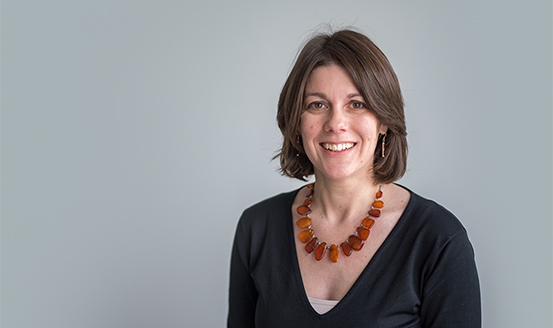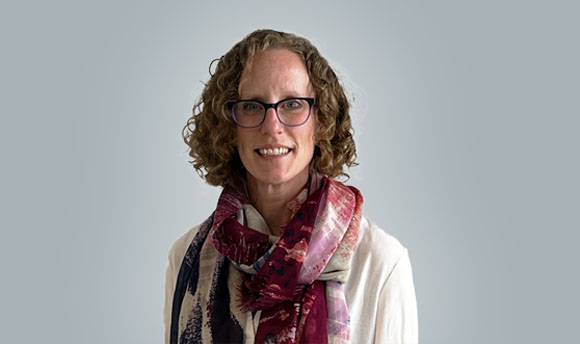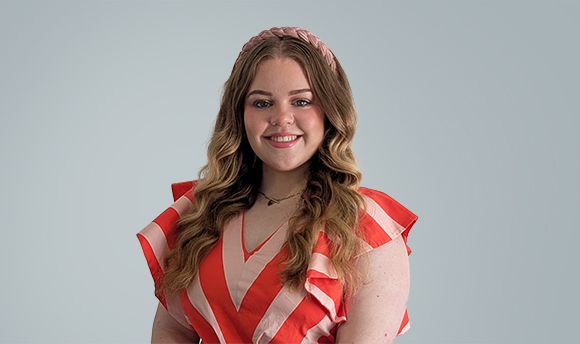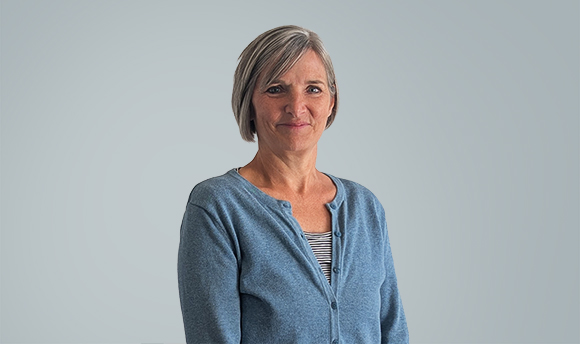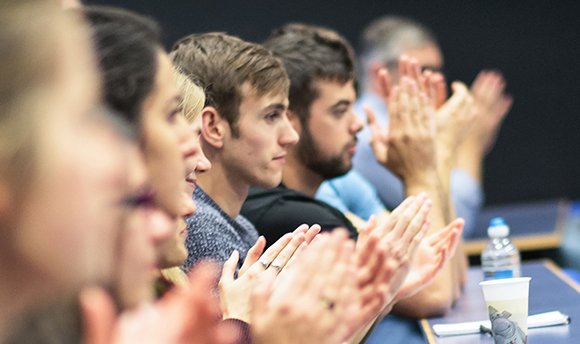BSc (Hons) Occupational Therapy*
Studying the BSc (Hons) Occupational Therapy Occupational course at QMU will prepare you for a fulfilling and impactful career that will enabling people to rediscover their passions, overcome challenges, and live life to the fullest. You'll gain the expertise, skills, and understanding to make a real difference, shaping lives and communities.
As an occupational therapist, you will have excellent employment prospects, in health care, social care, and wellbeing, and you will work with individuals, groups and communities to foster participation in the aspects of life that people need, want, and have to do.
*Subject to validation

Why QMU?
- Develop key skills that will help you work effectively with others: Studying on this course will give you the expertise, people skills and conceptual understanding that you will need to work as an occupational therapist.
- Get real-world ready: Our course is designed with the health and social care sector in mind. You'll gain hands-on experience through practical placements, bridging the gap between theory and practice
- Globally recognised, professionally respected: Our course is accredited by the Health & Care Professions Council (HCPC) and the Royal College of Occupational Therapists.It is recognised by the World Federation of Occupational Therapists (WFOT). Graduates are eligible to apply for registration with the Health & Care Professions Council.
- Top-ranked for success: Join a program renowned for its excellence. In the Complete University Guide 2026, this course ranked 1st in Scotland (Counselling, Psychotherapy & Occupational Therapy category).
- A vibrant community: Learn alongside diverse peers, including Master's students and those studying related disciplines like physiotherapy and speech and language therapy. Experience a collaborative and supportive learning environment with our award-winning and diverse staff team.
Studying Occupational Therapy at QMU
Occupational therapy is about enabling people to participate in the activities that matter most to them.
On this course you will:
- Empower and advocate by learning to provide practical support, promote health and wellbeing, and break down barriers that prevent people from doing what really matters to them;
- Develop into a professional by learning a wide range of transferable personal and professional skills, understanding the complexities of occupation, critically engaging with knowledge and evidence, and collaborating with services and services users to address the needs of their communities;
- Explore big issues like how societal factors, environments, and systems, influence people’s lives and their health, and what occupational therapists can do about these; and
- Learn by doing, gaining invaluable practical experience through placements in diverse settings, working with individuals, groups, and communities across Scotland and through a variety of innovative approaches to coursework.
Structure
In order to be eligible for HCPC registration which is required to work as an occupational therapist in the UK, you are required to complete all four years of the course, building your skills, confidence, and readiness for professional practice.
Teaching, learning and assessment
Our occupational therapy courses are designed to deliver a dynamic and engaging approach to learning, and you will build positive academic and professional relationships with your peers and our staff.
This course has the following attributes:
- Collaborative: You'll be part of a diverse cohort of students and will share learning experiences with students reading for their master’s degrees in occupational therapy, as well as students studying other subjects like physiotherapy, speech and language therapy, and podiatry.
- Hands-On: You will put your knowledge into practice with placements in each year of study, working in diverse health and social care, and community settings.
- Diverse Assessments: Demonstrate your knowledge and understanding through reports, essays, presentations, and practical assessments, moving beyond traditional exams.
- Expert Guidance: Learn from skilled, passionate, and award-winning staff and partners, who bring a wealth of expertise and real-world experience to the course.
- Global Perspectives: Gain insights from international partners, visiting lecturers, and practicing occupational therapists, broadening your understanding of the profession and where it might take you.
Placements
Each year, you’ll take part in a full-time practice placement where you’ll apply what you’ve learned in class to real-life situations. Our students work with individuals and groups in a range of settings, from hospitals and schools to community teams and charities
Placements are arranged and managed by QMU, so you don’t need to worry about finding one yourself. We’ll work with you to match placements to your learning goals and personal circumstances, including any health needs or caring responsibilities.
You’ll gain the hands-on experience needed to give you a strong foundation for your future career.
Placements take place across Scotland, so you may need to travel or temporarily relocate for some of them. If you have specific needs that mean you must stay in one location, we’ll take that into account when planning your placement.
Please note that there are additional costs associated with placements. Please see the ‘Other fees’ section under the ‘Entry requirements’ tab for more details.
Specialist facilities
Our course benefits from access to specialist facilities, including clinical simulation suites, occupational performance room, and creative and outdoor learning spaces, designed to enhance your practical skills.
Teaching staff, class sizes and timetables
We keep our class sizes small so that you can benefit from working closely with other students as well as the staff team. We have a highly skilled staff team with a diverse range of interests and expertise to support your learning journey.
You can read more about the teaching staff on this course at the bottom of this page. Please note that teaching staff is subject to change.
For more information, please also visit ‘How we teach and how you’ll learn’.
Year One
You will:
- study modules that provide you with the knowledge and skills that are foundational to occupational therapy practice;
- complete a six-week placement;
- be introduced to different perspectives on occupation and its centrality in everyday life, as well as its relationship with health and wellbeing;
- develop transferrable skills such as communication, information technology and academic study skills; and
- work alongside other allied health professions students to prepare for professional practice.
Modules:
- Foundations of Occupational Therapy
- Introduction to Professional Practice
- Developing Skills for Practice
- Humans as Occupational Beings
- OT Assessment 1: Analysing People and Occupations
- Practice-based Learning 1
Year Two
You will:
- develop knowledge and skills for key occupational therapy processes such as assessment, goal setting, and intervention planning;
- complete an eight-week placement;
- learn more about professional and evidence-informed decision making; and
- work alongside other allied health professions students to learn how to thrive in professional practice settings.
Modules:
- Thriving in Professional Practice
- OT Assessment 2: Professional Reasoning and Analysis
- OT intervention: Compensation and Modification for Occupation
- Practice-based Learning 2
- Inquiry and Evidence in Occupational Therapy
Year Three
You will:
- develop further skills in working as an occupational therapist in different settings and with different types of issues;
- learn about management and leadership as it relates to everyday practice within occupational therapy;
- complete an eight-week placement;
- learn about health promotion and public health, and how occupational therapy contributes to these.
Modules:
- OT intervention: Restoration and Maintenance
- Management and Leadership for OT Practice
- OT intervention: Prevention and Health Promotion
- OT Assessment 3: Evidence-informed Practice
- Practice-based Learning 3
Year Four
You will:
- critically explore issues related to practice, such as socio-political contexts, and how these influence occupation and occupational therapy;
- develop skills for leading practice development, quality improvement, and innovation;
- complete an 8-week placement; and
- participate in community partnership working or a development project, leading to the completion of an honours dissertation that extends your professional skill-set and your leadership abilities.
Modules:
- Honours Dissertation
- Quality Improvement in Occupational Therapy Practice
- Occupation in Social and Political Contexts
- Practice-based Learning 4
The degree opens doors to a rewarding and stimulating career in NHS trusts, local authority social care departments, voluntary organisations, private practice and industry, and your skills will also support entrepreneurial initiatives. Your work as an occupational therapist may not necessarily be in a medical setting, hospital or clinic. Many of our graduates pursue the exciting diversity of employment opportunities in the community, including within the voluntary sector or primary care. The course will enable you to work as part of a health and social care team. You will develop leadership and partnership working skills and you may wish to engage with further professional development or higher level academic learning opportunities.
This course is approved by the Health and Care Professions Council and the Royal College of Occupational Therapists and recognised by the World Federation of Occupational Therapists (WFOT). Graduates are eligible to apply for registration with the HCPC.
Entry requirements
Scottish Higher: Standard - BBBB Minimum - BBCC
A Level: BCC
Irish Leaving Certificate: H2 H2 H3 H3
International Baccalaureate: 28 points
International: IELTS score of 7.0 with no element below 6.5.
Required subjects: We accept a wide range of subjects at Higher, A Level or equivalent, however English is preferred, along with biology or psychology as preferred sciences, and a discursive subject such as History, Politics, or Sociology. English and Maths are required at Nat 5/GCSE at grade C/4 or above. We can also accept National 5 Application of Maths at the same grade
Am I a Widening Access student?: We apply the minimum entry criteria to applicants who meet one or more contextual factor. To see if this would apply to you, please refer to the access and application page.
Mature/Access: We welcome applications from mature students with other relevant qualifications and experience. Related Access course or HNC may be considered for Year One. Visit our College Leavers and Mature Students Advice page for more information.
Direct Entry:
- Applicants from the HNC Occupational Therapy Support will need a B in the graded unit, plus successful completion of practice placement (this must have been supervised by an occupational therapist), and a minimum National 5 grade C in English can be considered for direct entry into year two when places are available.
- If you wish to transfer from another occupational therapy course, you will need to complete a self-declaration stating that there were no previous concerns regarding fitness to practice. You will also need to grant us permission to contact your course leader to verify your statement.
Other requirements
- A satisfactory criminal records check from the Protection of Vulnerable Groups (PVG) Scheme, an occupational health check and personal indemnity insurance (normally through membership of the professional body) are required.
- You may be invited to attend an interview as part of the application process.
- Some experience working or volunteering with different groups of people is advantageous (for example, older or younger people with different health or life situations).
Disability/health conditions
If you have a disability, long-term physical or mental health condition, or learning disability, it should not stand in the way of your studying at QMU. However, if you are not sure whether your disability might be a barrier in your studies or in relation to the professional standards, please contact the Disability Service who will be able to have a conversation with you about reasonable adjustments and supports available to you.
Fee information
Fees: Please follow the link in the 'Course Overview' box for information on fees for 2026 entry.
Special note on RUK and ROI fees: Students from England, Wales, Northern Ireland and Ireland, who are subject to Rest of UK fees will be charged for the first three years of study only. The fourth year is free.
Other costs:
- The cost of professional indemnity insurance is the responsibility of the student.
- The additional costs associated with placement travel and accommodation are the responsibility of the student. Students who receive SAAS funding may be able to claim for some of these expenses to be reimbursed.
- Uniform, PVG and badge costs.
For more information on other costs, please visit the UG 2026 fees page.
Application information
How to apply: Application for this course should be made through UCAS. More application information is available in the 'Start your Application' box at the top right of this page.
QMU
- The delivery of this course is subject to the terms and conditions set out in our 2026/27 Entry Terms and Conditions (Undergraduate).
- This course is due for validation in 2025. We hope for the course content to be as described on this page, but the final part of the validation process may lead to some adjustments for 2026 entry. Please check the course page on the QMU website for updates.
Become your best you: study at QMU
Course Overview
Contact Us
Engage with the Team
Opportunities to meet us: open days and more
As well as open days, we offer campus tours and online events throughout the year to help you find out more about student life and studying at QMU.
Open days and other ways of meeting us: more informationCourses You Might Also Like
- Master of Dietetics (MDiet)/BSc (Hons) Dietetics (2026 entry)
- BSc (Hons) Nursing (2026 entry)
- Master of Nursing (2026 entry)
- Master of Nutrition/BSc (Hons) Nutrition (2026 entry)
- BSc Paramedic Science (2026 entry)
- Master of Physiotherapy/BSc (Hons) Physiotherapy (2026 entry)
- Master of Podiatry/BSc (Hons) Podiatry (2026 entry)
- Master of Diagnostic Radiography/BSc (Hons) Diagnostic Radiography (2026 entry)
- Master of Radiotherapy and Oncology/BSc (Hons) Radiotherapy and Oncology (2026 entry)
- Master of Speech and Language Therapy/BSc (Hons) Speech and Language Therapy (2026 entry)


